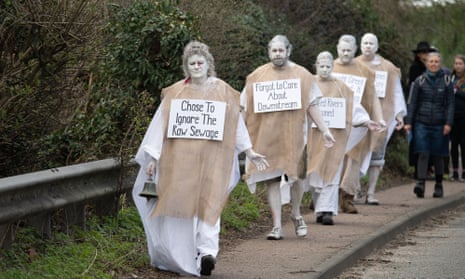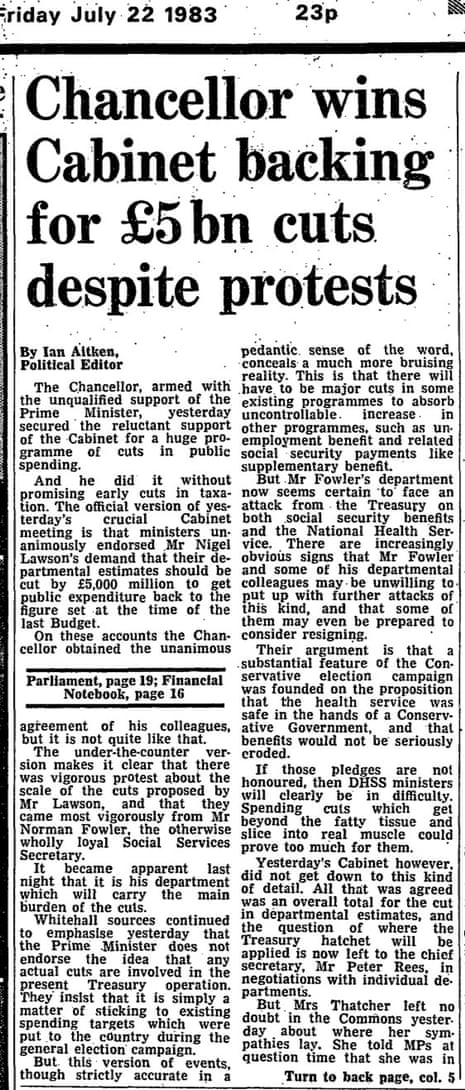Key events
Young people could be disenfranchised at local elections next month due to voter ID rules
Young people could be disfranchised in the local elections next month because of inadequate attempts by the government to make them aware of new voter ID rules, according to the Electoral Reform Society.
The new policy means people must be registered to vote and take a form of photo ID to the polling station on 4 May.
There has been bemusement and concern raised over a discrepancy in the types of ID that are allowed.
Passport or driving licence are valid for everyone but some types of photo ID, including some travelcards for young people, will not be accepted. However for older voters, bus passes and Oyster cards are allowed.
Anyone without the correct identification needs to apply for a Voter Authority Certificate by 25 April.
Campaign groups the Electoral Reform Society and Unlock Democracy have warned as many as two million people in Britain do not currently have the right form of ID.
Willie Sullivan, senior director at the Electoral Reform Society, told PA Media: “Allowing bus passes and Oyster cards for older voters but refusing to accept the same forms of ID for young people means that these new rules could disproportionately shut out younger voters from the ballot box.
“If the government wants to improve our elections it should be finding ways to encourage voter engagement - especially amongst young people who typically turn out less at election time. Instead, these new laws will do just the opposite.”
The government has argued the policy was introduced to prevent voter impersonation. There is no evidence of large-scale electoral fraud over the past five years, according to the Electoral Commission.
Between 2018 and 2022, there were nine convictions relating to electoral fraud and six police cautions issued, its figures show.
Downing Street acknowledged on Monday that the rules were aimed at preventing “potential” wrongdoing, rather than dealing with any widespread existing issue.
It insisted that only a “very small proportion” of young voters lack the necessary ID to cast their ballot.
“This is to guard against the potential for wrongdoing in this area or voter impersonation,” the prime minister’s official spokesperson said.

Helena Horton
David Black, who chairs the water regulator Ofwat, has suggested that water company bosses’ pay should be linked to performance.
Speaking at Thérèse Coffey’s water plan launch, he said the reputation of water companies has been “damaged” by “executive pay and dividends not linked to performance”.
He also said that while the public want companies to deliver for the environment, they also want low bills, and celebrated the announcement about faster roll out of smart meters for water use.

Thérèse Coffey announces government’s plan for water pollution

Helena Horton
Thérèse Coffey is announcing the government’s plan for water pollution at the Barnes Wetland Centre. It has been criticised for mostly containing already- announced policies and not going far enough to tackle England’s sewage scandal.
But she has defended the Conservative party’s record and said there is no way to end pollution as quickly as campaigners ask.
She told the audience of journalists, NGOs and water companies: “There is no way you can stop pollution overnight. If there were I would do it just as quickly without hesitation.”
She said that building more infrastructure such as super sewers could add “hundreds to people’s bills” and took a veiled jibe at Labour, who have promised to “end the sewage scandal.”
The environment secretary said those who say they can end the discharges more quickly are “either detached from reality or being definitively dishonest with the public.”
In more lighthearted news, water minister Rebecca Pow will be upset as she asked Coffey to be speedy with her remarks so she could see the Barnes otters being fed at 11.
Unfortunately Coffey was almost half an hour late, and the otters have now been fed.

Jason Rodrigues
This is a nice find from the Guardian archives after the death of Nigel Lawson, a chancellor under Margaret Thatcher during the 1980s. He was often referred to by political commentators at the time as one of the “big beasts” of her cabinets.
Promoted by Thatcher to lead the Treasury in 1983, he cut income tax, promoted share ownership and pushed down government debt. He resigned in 1989, after falling out with her over Europe.
In 1983, the Guardian reported on the newly appointed chancellor’s determination to significantly reduce UK public spending, getting the cabinet to agree to a hefty £5bn cut despite ‘vigorous protests’ from some ministers.


As mentioned earlier, Keir Starmer is at Burnley College this morning as part of another push on crime.
Speaking to reporters, he said that the public does not think the government’s attempts to tackle antisocial behaviour are making any difference.
Starmer said: “The government sometimes likes to pretend that it doesn’t really exist or it doesn’t really impact on people.”
He repeated Labour’s policy of recruiting 13,000 new neighbourhood police and the introduction of “respect orders”.
“Talk to people anywhere, Burnley or anywhere across the country, and they would say after 13 years we’re in a position where antisocial behaviour still hasn’t been dealt with. They’re pretty fed up with the government and they don’t think that the measures the government’s put in place are making any difference.
“And I think the government should come out more and talk to people in their neighbourhoods, in their streets and see just the level of antisocial behaviour.”
Teachers vote for strikes this summer

Richard Adams
More school strikes are likely in England this summer and autumn, after delegates at the National Education Union’s annual conference in Harrogate voted for three days of strikes to take place in late June or early July and a reballot of members next month to authorise further industrial action from September.
The new strikes are timed to come after the end of A-level and GCSE exams, to avoid disruption for students.
The NEU is already committed to holding two days of teacher strikes, on Thursday 27 April and Tuesday 2 May, after its members decisively rejected the government’s pay offer.
The Association of School and College Leaders, which represents many secondary school head teachers in England, has also rejected the government’s offer. Its ballot of members found that 87% voted against the offer. The ASCL executive is expected to ballot its members on strike action after Easter.
An interesting post-Brexit development this morning, as the science secretary, Michelle Donelan, heads to Brussels to meet with the EU about potential associate membership of the science funding and research programme Horizon.
Politics Home reports that the meeting is introductory, and that officials are drawing up plans for science and technology if the talks fail.
The European Commission vice-president, Ursula von der Leyen, said that the Windsor agreement had paved the way for potential associate membership “immediately”, after the long-running dispute over arrangements for Northern Ireland.
There have been concerns that Britain being left out in the cold when it comes to Horizon could lead to an “exodus of scientists”. Funding from the EU programme had dramatically fallen in the two years since Brexit, with a number of scientists welcoming Von der Leyen’s comments in Belfast in February.
Two former prime ministers have been heavily criticised for causing delays to the release of Nazanin Zaghari-Ratcliffe and Anoosheh Ashoori.
A new report by the foreign affairs select committee said Liz Truss and Boris Johnson “let down” families by making inaccurate or counterproductive statements to the Commons during their periods as foreign secretary.
Johnson had wrongly said Zaghari-Ratcliffe was “training journalists” in a parliamentary committee in November 2017. Last year, after her release, Zaghari-Ratcliffe challenged Johnson over the comments, saying she had lived in the “shadow” of them for four years.
Jeremy Hunt’s announcement that he had given Zaghari-Ratcliffe diplomatic protection in March 2019 was criticised as he did not follow through with the substance. Zaghari-Ratcliffe and Ashoori, two British-Iranian dual nationals, were released in March last year.
Good morning from London.
In just under an hour, the environment secretary, Thérèse Coffey, will launch the government’s snappily titled “plan for cleaner and more plentiful water”, which is ministers’ latest attempt to clean up rivers and seas across England.
In an op-ed for the Telegraph overnight she said that there is a “massive amount still to do – and sewage is a terrible symptom of the strain on our water system”.
It includes a £1.6bn fund to reduce the usage of storm overflows, which sends sewage into rivers and seas during large surges of water.
She adds: “I want to level with you, we cannot stop pollution overnight. Much of this will take longer than any of us would, but that is the reality of replumbing a Victorian sewage system.”
My colleague Helena Horton revealed last night that a study showed some of Britain’s best beaches had 8,500 hours of sewage dumping last year.
Coffey will give a speech at 10.20am and then record a pool clip afterwards as well as taking questions, which I’ll bring you when we have it.
Meanwhile, it’s three years of Keir Starmer today, as it marks the third anniversary of him becoming Labour leader.
He and his party are still leading in the polls, despite a minor recovery in some polls for the Conservative party and Rishi Sunak, the third prime minister Starmer has faced since 2020.
He is in east Lancashire today to see how sports projects can help keep youngsters from falling into crime. It’s as part of an ongoing policy push on crime, mimicking Tony Blair’s “tough on crime, tough on the causes of crime” rhetoric from the 1990s.
Polling by YouGov for the Times suggests that the public thinks Starmer is turning around Labour, after its worst defeat since the 1930s. However there is concern that he still has some way to go before winning power.
And finally, the former chancellor Nigel Lawson’s death, aged 91, was announced last night.
One of the biggest proponents of free-market capitalism in Margaret Thatcher’s government alongside the then-prime minister, his reforms were key to the “big bang” in the financial markets that gave the sector the power it has in Britain today.
The Telegraph has an op-ed (paywall) which claims that Lawson made the British economy “the envy of the world”.
You can get in touch with any comments or tips, either by emailing harry.taylor@guardian.co.uk or as always, comments are open below the line.

 1 year ago
66
1 year ago
66










 English (US)
English (US)